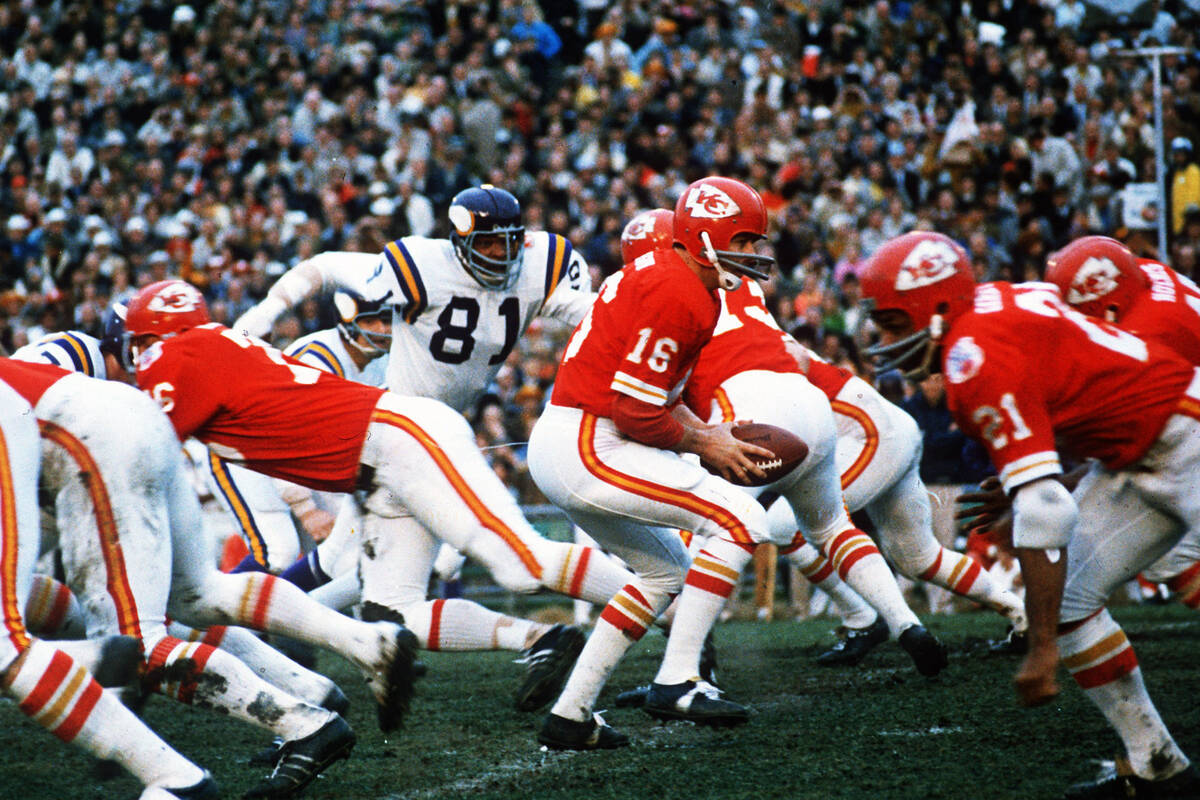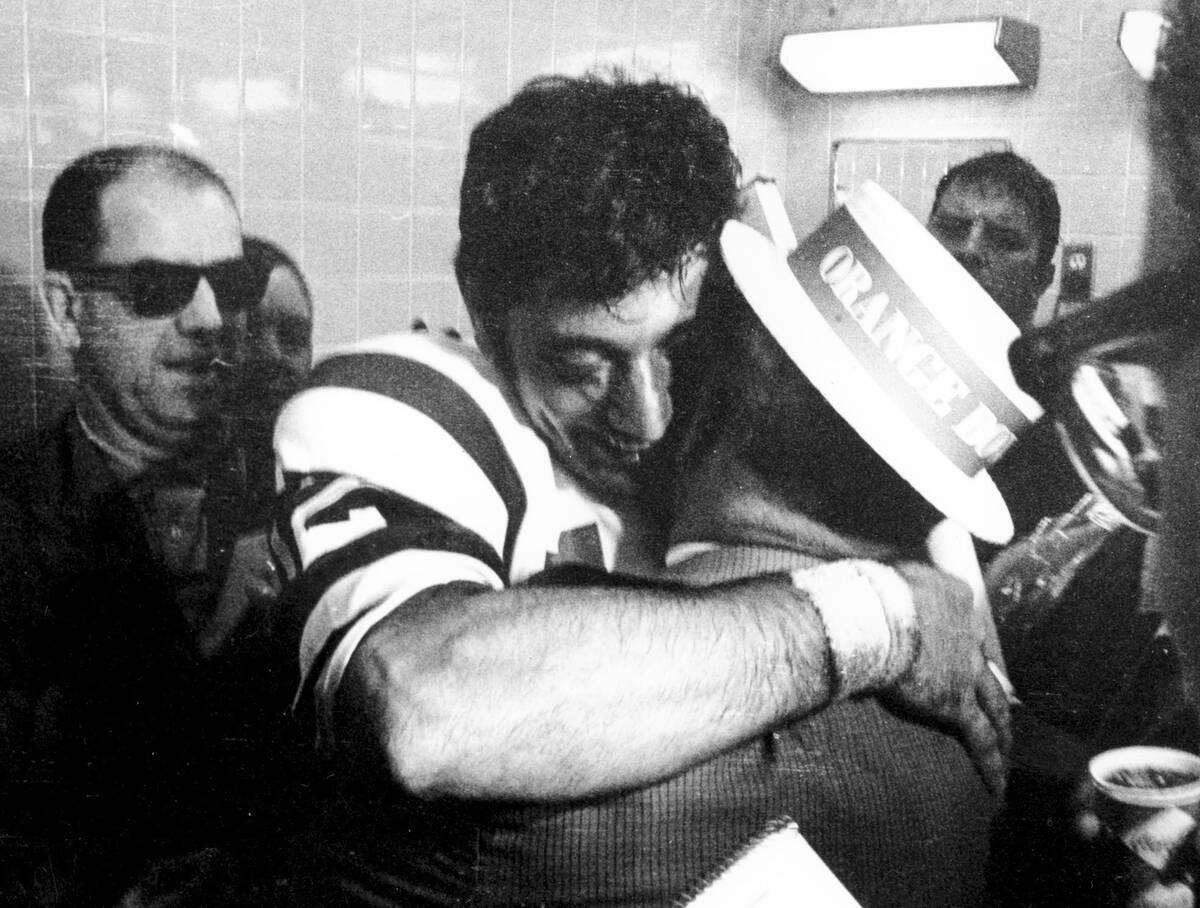5 biggest upsets in Super Bowl history
Favorites have fared better than underdogs in the Super Bowl, winning 37 of 56 games while going 28-26-2 ATS (the 2015 game between the Patriots and Seahawks closed at pick’em).
But underdogs have produced some of the most memorable moments in the storied history of the Super Bowl.
Based on point spreads, here are the five biggest upsets in Super Bowl history, all by double-digit underdogs:
5. Broncos (+11) over Packers, 31-24, 1998
John Elway finally led Denver to a Super Bowl win after the Pro Football Hall of Fame quarterback suffered three blowout losses in the NFL title game. Elway, 37 at the time, helped set up a tie-breaking touchdown in the second half by picking up a key first down when he launched himself into the air and was knocked into a helicopter spin in one of the most iconic plays in Super Bowl history.
Terrell Davis rushed for 157 yards and three TDs en route to Super Bowl MVP honors in the back-and-forth affair that wasn’t decided until he punched it in from a yard out with 1:47 left.
Afterward, Broncos owner Pat Bowlen exclaimed, “This one’s for John!” after he was handed the Lombardi Trophy.
4. Chiefs (+12) over Vikings, 23-7, 1970
A year after the Jets stunned the Colts in Super Bowl III (see below), the AFL champion Chiefs proved it wasn’t a fluke by dominating the Vikings in Super Bowl IV. Kansas City led 16-0 at halftime and held Minnesota to 67 rushing yards while making three interceptions and recovering two fumbles.
3. Giants (+12) over Patriots, 21-17, 2008
The 2007 New England Patriots were 35 seconds away from the only perfect 19-0 season in NFL history when Plaxico Burress scored the winning TD for the Giants, hauling in a 13-yard pass from Eli Manning.
The Patriots, who beat New York 38-35 in the final game of the regular season to complete the league’s first 16-0 campaign, went ahead 14-10 in the Super Bowl on Tom Brady’s 6-yard TD pass to Randy Moss with 2:42 left.
But that was more than enough time for the Giants, who responded with an 83-yard drive highlighted by David Tyree’s iconic “Helmet Catch.”On third down at midfield, Tyree made a leaping one-handed catch in which he pinned the football to the crown of his helmet for a 32-yard first down conversion.
Bettors beat Nevada sportsbooks out of an official state record $2.57 million on the game. It was one of only two Super Bowl losses by the state since it started tracking them in 1991. The other was the 1995 Super Bowl between the 49ers and Chargers.
2. Patriots (+14) over St. Louis Rams, 20-17, 2002
In Tom Brady’s first season as a starter, he led defensive-minded New England to its first Super Bowl title as a two-TD underdog to the high-flying Rams, aka the “Greatest Show on Turf.”
The Patriots turned three turnovers into 17 points for a 17-3 lead before Kurt Warner and Co. rallied for two late fourth-quarter TDs to tie the game with 1:30 left. As announcer John Madden urged New England to play for overtime, Brady engineered the game-winning drive, marching the Patriots 53 yards in nine plays to set up Adam Vinatieri’s 48-yard field goal as time expired.
New England went on to win five more Super Bowls and Brady won six more. The Rams had to wait 20 years and move back to Los Angeles before winning another one.
1. Jets (+18) over Baltimore Colts, 16-7, 1969
“Broadway Joe” Namath famously guaranteed his AFL champion Jets would beat the heavily favored NFL champion Colts.
New York’s defense backed up his words as it forced five turnovers, including four interceptions, picking off Baltimore starter Earl Morrall three times and backup Johnny Unitas once.
The Jets led 7-0 at halftime and built a 16-0 lead in the fourth quarter before the Colts scored their only TD with 3:32 left.
Namath completed 17 of 28 passes for 206 yards and no TDs or interceptions en route to earning Super Bowl MVP honors. He was the first player in Super Bowl history to be named MVP without accounting for a TD. The victory was the first Super Bowl win for the AFL, which merged with the NFL in 1970.
Contact reporter Todd Dewey at tdewey@reviewjournal.com. Follow @tdewey33 on Twitter.
























